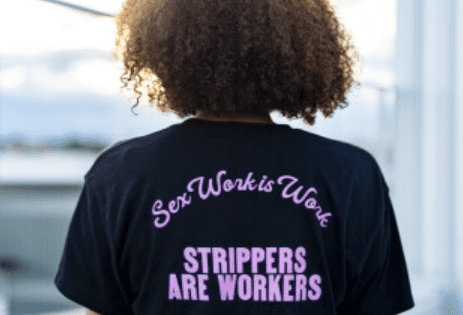In the US state of Washington, dancers at strip clubs have been granted protections at work when the governor approved a bill that puts them on an equal legal footing with other workers.
This law, signed by Governor Jay Inslee on Monday, is one of the most comprehensive in the nation and establishes safety and wage standards.
"Strippers are employees and should have the same rights and safeguards as any other workforce.
"If they work at a legitimate establishment in Washington, they should have the same protections as all employees, including protection from exploitation, trafficking, and abuse," explained Washington state Senator Rebecca Saldana, who introduced the bill.
The law requires panic buttons in areas where dancers may be alone with customers and obliges clubs to have trained staff available to handle security issues.
It also outlines rules for clear contracts that would limit the fees clubs could charge strippers, many of whom work as independent contractors.
The law also seeks to permit alcohol to be served in clubs, creating a potential source of revenue to help clubs finance these measures.
The legislation was developed with input from Strippers Are Workers, a campaign group representing sex workers.
"For five years, we have brought together and gained agreement from dancers to create a bill that addresses issues in the Washington adult entertainment industry and secures more workers' rights and protections for dancers," the group stated prior to the bill being signed.
The group noted that Washington was different for not allowing the sale of alcohol in strip clubs.
"Alcohol service has been determined, by dancers and scientific research, to actually make clubs safer and fairer," they asserted. "Dancers deserve to work equitably, safely, and without being stigmatized."
In January, strippers in New Zealand protested at parliament for improved employment rights and changes to the adult entertainment industry.
Last year, strippers at a Los Angeles bar voted to form a union to better protect themselves from what they consider exploitative practices.
AFP



